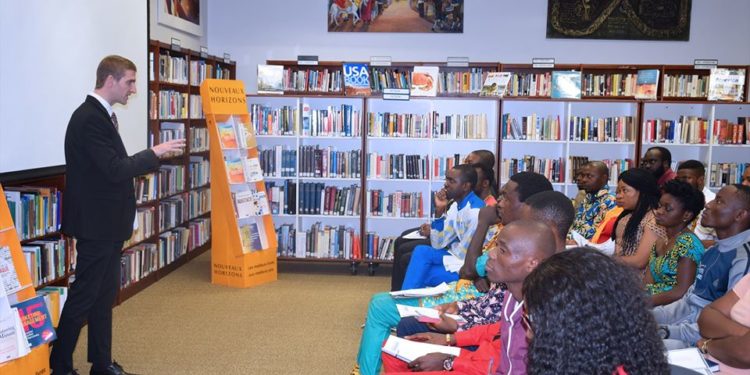The Government of the Republic of Cameroon does not fully meet the minimum standards for the elimination of trafficking but is making significant efforts to do so according to rights activists
The United States Embassy in Cameroon recently organized a seminar to school researchers, students, civil society activists and media practitioners on the different forms of human trafficking and their dangers to the society.
According to a document presented on the occasion, the government of Cameroon did not fully disseminate its standard operating procedures on the identification of victims of human trafficking, and referral of those found guilty to law enforcement officers. The government did not pass draft anti-trafficking legislation from 2012 that conforms to international law.
While the government of Cameroon developed a National Referral System (NRS) and Standards Operating Procedures (SOP) in 2013 to guide officials in proactive identification and referral of trafficking victims, it has not implemented the NRS/SOP nor did it report training officials on the measures.
As of 2019, the government did not have a formal policy to encourage victims to participate in investigations or prosecutions of their traffickers or any other assistance to victims who testified during court proceedings.
The government did not report providing protection for victims cooperating with trafficking investigations in spite of experts claiming trafficking networks repeatedly threatened victims during their trials.
The report went further to indicate that the government decreased prevention efforts which impeded implementation of the 2017 – 2019 anti-trafficking national action plan for lack of coordination and funding.
Statistics on comprehensive law enforcement in 2019 are absent and the ongoing insecurity in the Far North regions as well as the crisis in the Anglophone regions greatly hindered government’s law enforcement efforts due to lack of official access in some areas and the closure of courts in Bamenda and Buea.
The Way Forward
According to an expert from the U S Department of state fighting human trafficking, Ben Wiselogle, there is much the government can do but the fight has to be collective.
NGOs personnel and law enforcement officers should be trained on the National Referral System and Standards Operating Procedures on victims identification, formal collaboration with NGOs should be improved, the anti trafficking inter-ministerial committee (IMC) should be convene regularly and should include NGOs, anti trafficking laws should be amended to remove requirements of force, fraud, or coercion for child sex trafficking offenses and to make a clear distinction between trafficking and smuggling, as well as prosecute those complicit in trafficking.









What do tou think about Human Trafficking in Cameroon?